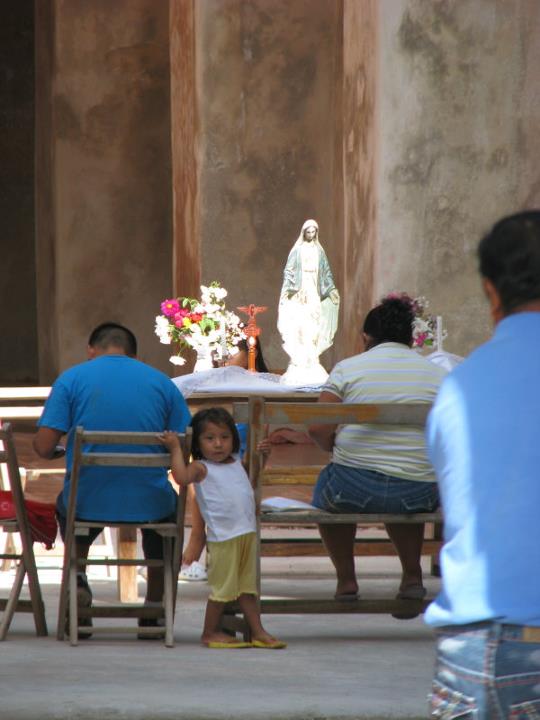|
FLAS Funding Opportunities for Learning Maya
OSEA Maya Immersion Language Program follows the U.S. Department of Education Guidelines for FLAS eligible intensive summer language learning programs. FLAS stands for Foreign Language and Area Studies Fellowships. These fellowships are awarded for full year academic study or for intensive summer programs.
Graduate students have always been eligible but starting in 2010 undergraduate students are now eligible to receive FLAS Fellowships for Summer Programs to learn a less commonly taught languages such as Yucatec Maya. To read more about the FLAS fellowships see the US Dept. Education brochure.
Students interested in applying for a FLAS grant must be a student at one of the universities that have a federally recognized National Resource Center (NRC) in Latin American and Caribbean studies. A complete list of centers for the period ending in 2009 can be found here. Each of these NRCs have their own deadlines for their students at their university to apply for FLAS funding. Please check this list of universities and their corresponding websites in order to find information on the application process.
FLAS Award Amounts in 2009 for participation in an approved summer intensive language program was $4000 for tuition and a stipend/travel of $2500. These amounts increase on an annual basis to account for changing program costs.
OSEA offers the Reynaldo Mis and Eddy Ceme Maya Scholarship
What if I am not Eligible for a FLAS because my Home University is not a NRC?
If you are not eligible for a FLAS Summer Fellowship Grant or if you have not been granted FLAS award, you are eligible automatically for an OSEA Rey and Edy Mis Tuition Reduction Scholarship. The amounts of these awards vary from $2000 to $2400 tuition reduction. This cost reduction is deducted from the final payment of program costs.
PLEASE CONTACT your Latin American/Caribbean studies center to verify the availability of FLAS Fellowships and any alternative funding from your university. Please pay attention to the deadlines. If you are required to have a letter of acceptance into a summer program by the time you apply please contact OSEA staff as soon as possible to arrange for providing you the help you need to have a competitive proposal.
Maya or Mayan Language? Yucatec Maya or Maya?
Note that Maya is commonly called Yucatec Maya by linguists and US based or anglophone educators to distinguish it from any of the other 28 or so Mayan languages spoken in Guatemala, Mexico, Belize, and Honduras.
The native speakers of Yucatec Maya call their language Maya.
Maya is the correct proper name of the language.
Mayan is only correctly used when referring to a) the Mayan language family of 28 or so currently spoken languages; b) one of these 28 Mayan languages that comprise the Mayan language family -- note that each of these have a proper name and should not be called Mayan as the proper name of the language; c) the proto-Mayan language from which all the Mayan languages are ancestrally derived; and finally d) to a speaker of any one of these Mayan or proto-Mayan languages.
Note that Mayan is therefore not a sociocultural, racial or ethnic term of identity or label. Similarly, Indo-European is not a national, religious, social, cultural, racial, or kinship term of identity. Mayan can refer to persons the same way that you use the word Indo-European to refer to languages and to persons.
The name Maya is the sociocultural term of ethnic-historical identity. The name Maya is originally an adjective used to identity the cultural things associated with the Maya. Thus it is correct to say Maya Civilization, Maya culture, Maya calendars, Maya houses, Maya food, Maya joking and it is incorrect to use the word Mayan in any and all of these senses
  .
.
|